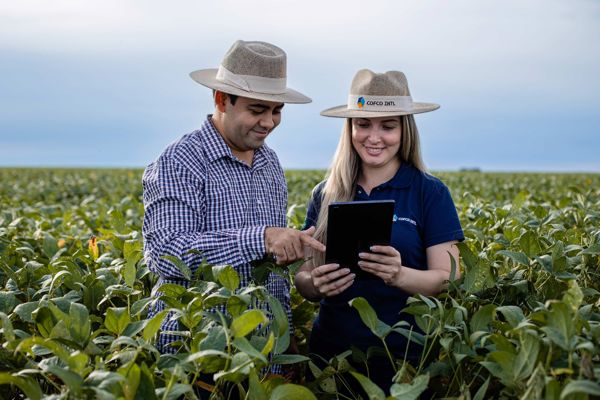
Shippers commit to measure and disclose emissions, giving unprecedented insight into climate impact
For the first time, some of the world’s largest energy, agriculture, mining, and commodity trading companies, including COFCO International, have published the climate alignment of their shipping activities. This new data set will allow companies to work with their partners to drive carbon efficiency and reductions and align their chartering activities with climate action goals.
Ship charterers and operators representing over 15% of total bulk cargo transported by sea in 2021 have committed to the Sea Cargo Charter, a global framework to measure and publicly disclose alignment of chartering activities with the ambition to reduce total greenhouse gas (GHG) emissions from international shipping by at least 50% by 2050, as set out by the International Maritime Organization (IMO).
“COFCO International is proud to have reached this first shipping emissions reporting goal together with other Sea Cargo Charter signatories. We thank the Global Maritime Forum and all other charter members for this accomplishment,” says Alessio La Rosa, Global Head of Freight at COFCO International.
“Improved emissions reporting is a major milestone in the industry-wide decarbonization and at COFCO International, we remain committed to improving the carbon footprint of our sea freight operations and contributing to reducing shipping industry emissions.”
As efficiently as possible
COFCO International is supporting systemic change within the industry through two major collaborations, the Sea Cargo Charter and the Getting to Zero Coalition, which is committed to decarbonising the shipping sector by bringing commercially viable zero-emission vessels into operation by 2030.
As part of these efforts, COFCO International is taking steps to ensure that its vessels run as efficiently as possible and with decreased CO2 emissions. This includes verifying Energy Efficiency eXisting ship Indexes (EEXI) before fixing time-chartered vessels, as well as fixing older tonnage for low-performing vessels.
Sea Cargo Charter gives signatories the chance to look at the bigger picture in a fact-based and transparent manner. By calculating and reporting alignment scores, COFCO International will be able to better understand how consistent its decarbonization efforts are when compared with those of the wider industry and identify hotspots for further improvement.
Overall, COFCO International’s climate alignment score for the reported activities seems to indicate that its voyages are overall aligned with the decarbonization trajectory. This new metric provides greater clarity over the vessel categories in which the company is making good progress and those which require greater focus in 2022 and beyond. With these data, COFCO International will be able to make targeted efforts to improve its alignment with the category-specific decarbonization trajectories, especially for the vessel types where it may be lagging.
Vital insight into current progress
The Sea Cargo Charter Annual Disclosure Report 2022 reveals the climate alignment scores of 25 charterers and operators and provides insight into the maritime industry’s current state of progress towards the IMO’s goal of reducing shipping emissions by at least 50% by 2050.
It includes emissions data collected by signatories from ship owners and operators for chartering activities in 2021 and compares it to a decarbonization trajectory for the same year.
“Thanks to unprecedented levels of data sharing, we better understand the climate impacts of our business activities at a much more granular level, and can back upoperational and strategic decision-making with real data,” says Jan Dieleman, Chair of the Sea Cargo Charter Association and President, Cargill Ocean Transportation. “Signatories of the Sea Cargo Charter have diverse profiles and activities and this report holds us accountable to our targets and allows us all to play our part in addressing the environmental impacts of global maritime trade on people and the planet.”
As well as COFCO International, signatories reporting this year are: ADM, Anglo American, Bunge, Cargill, Copenhagen Commercial Platform, Diamond Bulk Carriers, Dow, Eagle Bulk, Enviva, Equinor, Gunvor, Holcim Trading, Klaveness Combination Carriers, Louis Dreyfus Company, Maersk Tankers, Norden, Nova Marine, NYK Bulkship (Atlantic), Shell, Signal Maritime Services, Tata Steel, Torvald Klaveness, TotalEnergies and Trafigura.
Click here to read the Sea Cargo Charter Annual Disclosure Report 2022.
